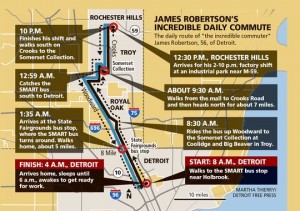No, I didn’t make another mistake and mean to title this “Employee Discount”, but you were totally in your right to think I would make a mistake!
We discount our employees. We do this in a number of ways:
1. Experience. The ten year employee is always looked at less than a new employee coming in with ten years of experience.
2. Opinions. The long term employee’s opinion gets lost to the new voice, because we’ve heard the old employees opinion before. It doesn’t, necessarily, become less valid, but we treat it as such.
3. Value. We tend to pay same level experience internal employees less than we pay someone coming from the outside with the same experience, education, etc. This ‘discount’ is well known in the industry. Hometown discount. They’ve been here forever. They aren’t going anywhere. Why pay them more competitively?
There is one more way you are currently discounting your employees, Candidate Experience.
Candidate experience is really sexy right now in HR and Talent Acquisition. It’s all the buzz! Everyone is concentrating on making their candidate experience better.
You know why? It’s fuzzy metrics. While you can get ‘real’ measures and metrics from your Candidate Experience, it’s not really, real. Candidates want a job from you. When you ask them about their experience they inflate what they really think because they want a job from you. When you ask them after the entire experience is over, two things happen, first, they either got the job (in which you’ll get good measures) or second, they didn’t get the job and still want one (in which you’ll get good measures).
We love good measures in HR and Talent Acquisition.
We hate measures that make us work, like employee engagement. It’s easier and more rewarding to spend money and energy and Candidate Experience, than Employee Engagement. Employee engagement is hard. As soon as we fix the stuff from the last survey, the employee expect more! You know who doesn’t expect more? Candidates.
The ironic part of all of this is the easiest and best way to have great candidate experience is to not have to hire.Spend more resources on Employee Engagement, and you won’t have to spend more resources on Candidate Experience.
Chicken or the egg. Discounted Employees. You are discounting your employees in favor of candidates, and you don’t even realize it.

